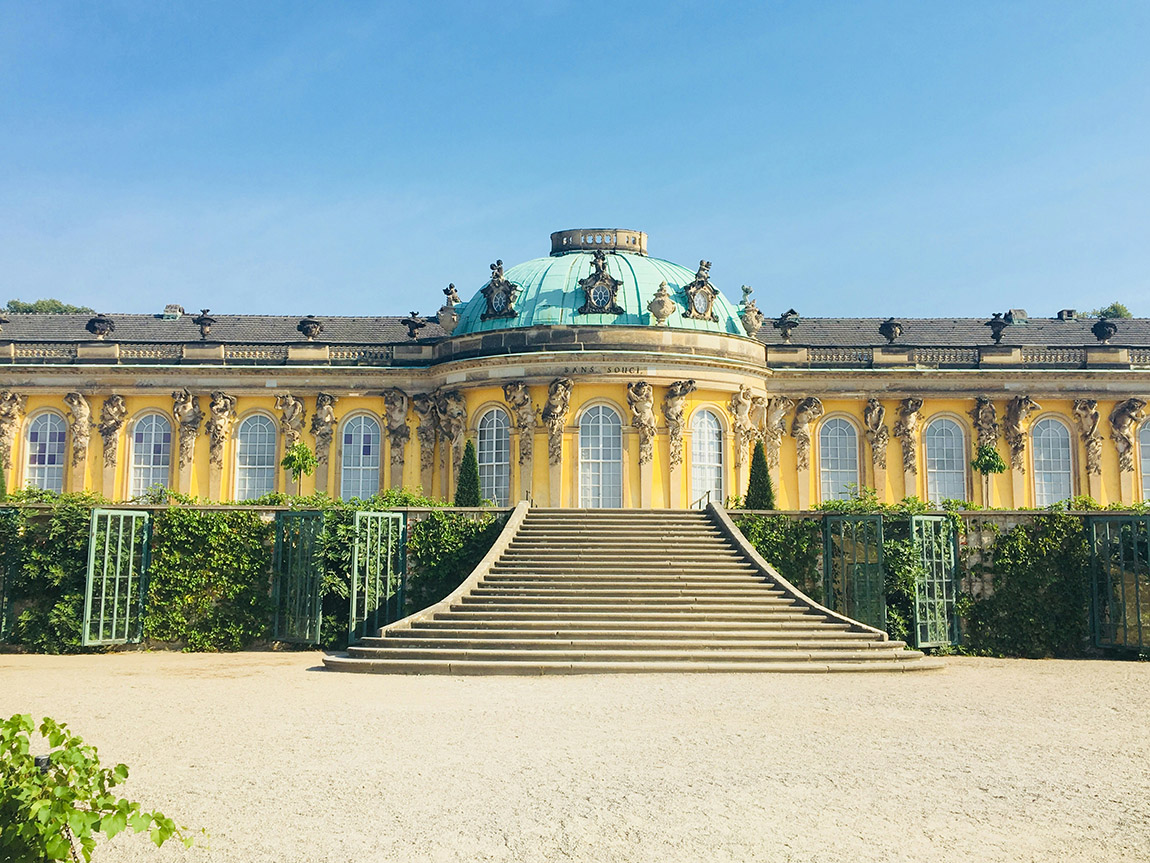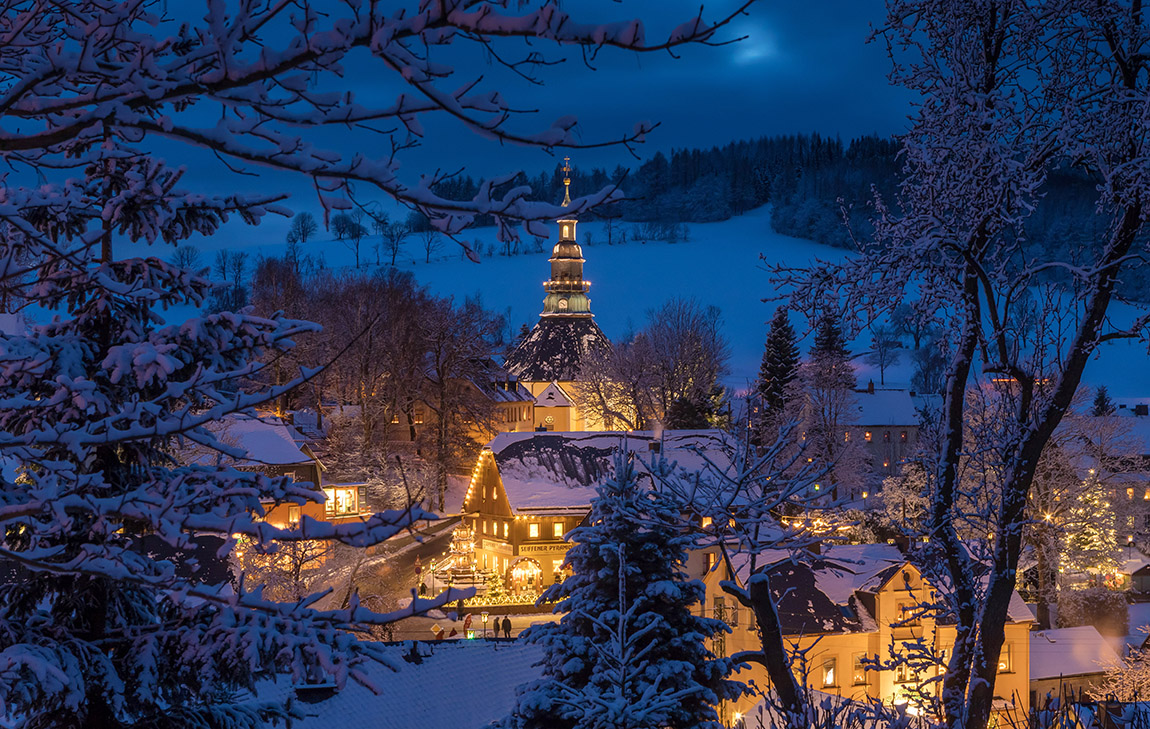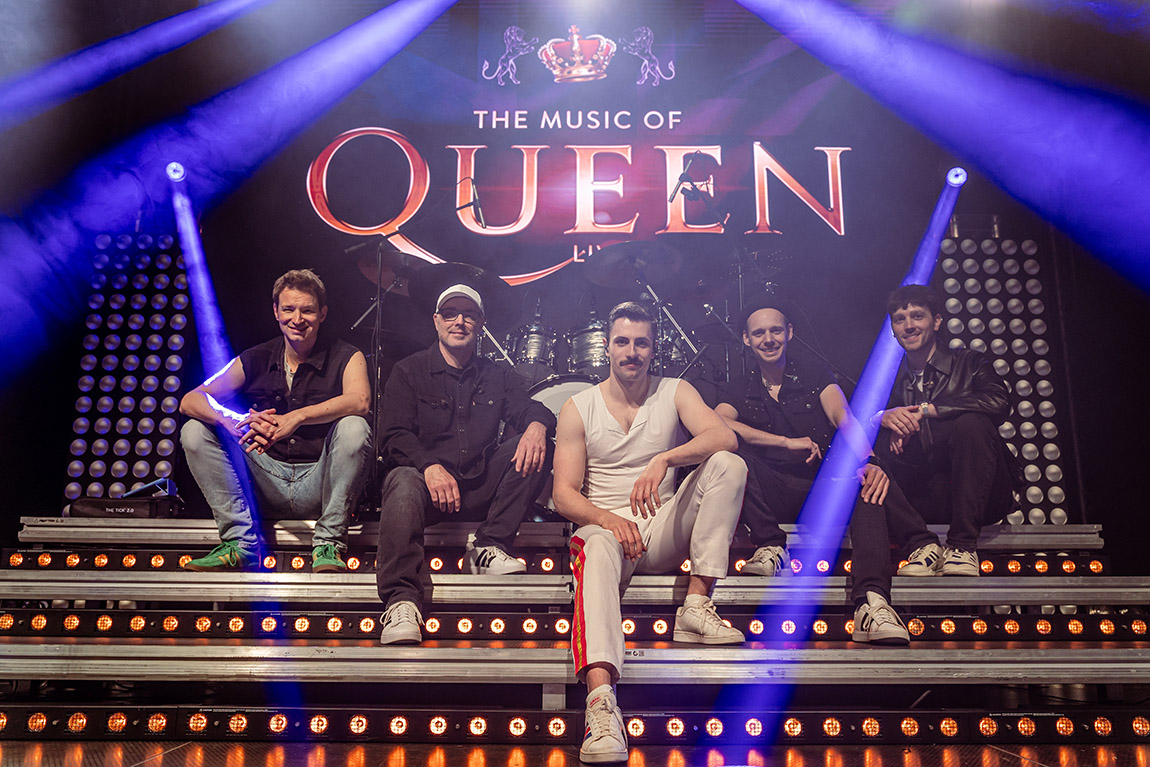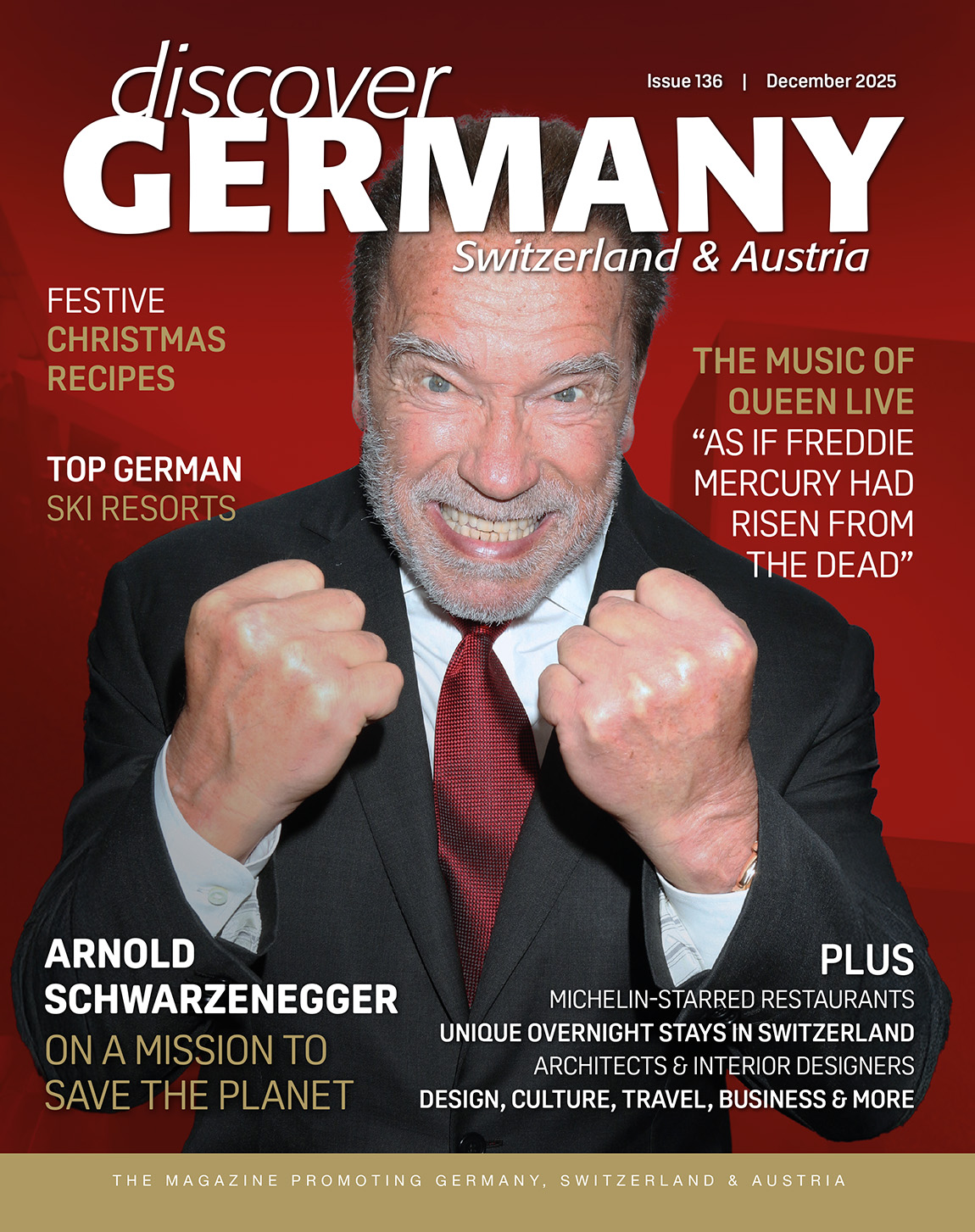Top German Cities – 3 Getaway and Investment Gems
TEXT: CORNELIA BRELOWSKI
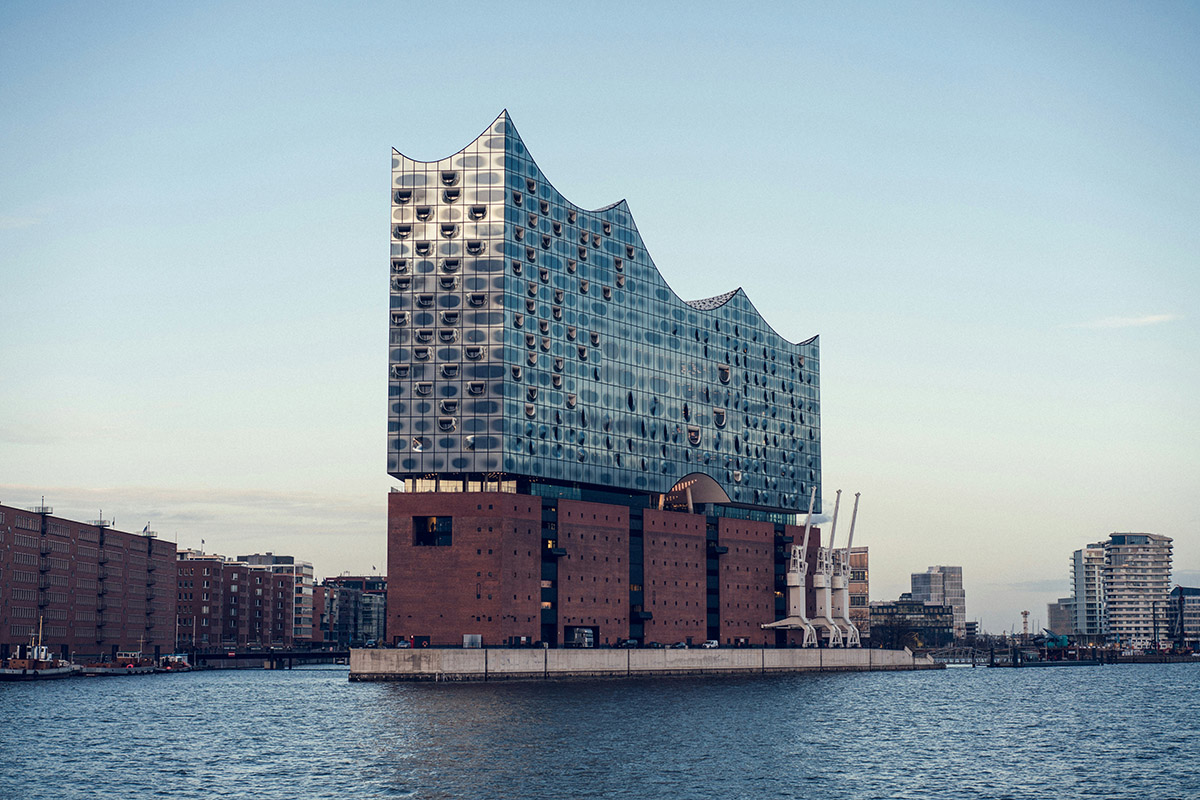
Hamburg, Elbphilharmonie. Photo: Jonas Tebbe on Unsplash
Many German destinations this year were gilded by hosting a football game during the European Championships – among which Berlin, Hamburg and Munich remain the ‘top three’ as both travelling and investment magnets.
Top German Cities: Berlin, city of dreams and extremes
Ever since its heydays in the Golden Twenties, Berlin has never stopped to attract. The city’s kaleidoscope of history and change is doubtlessly unparalleled and has never lost its pull for the international crowd.
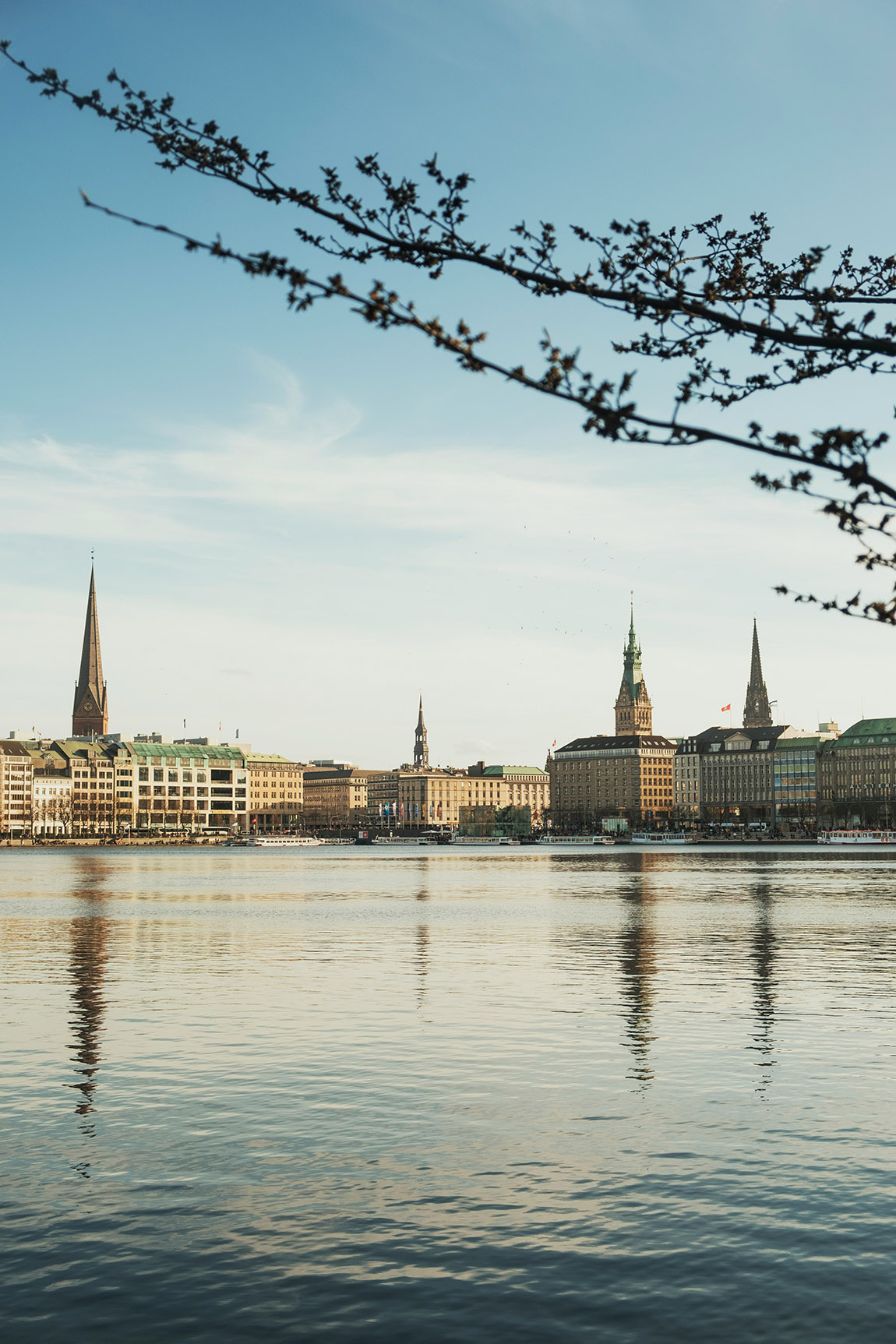
Hamburg Panorama. Photo: Julia Solonina on Unsplash
Frequent travellers may still remember the omnipresent airport billboards with the slogan “Time to Invest in Berlin and Brandenburg” during the ‘noughties’, aka the first decade of the millennium. Berlin had just advanced to capital status again in 1999, a mere decade after the wall came down. What happened on both sides of the crumbling city wall however may have felt a tad different from the inside than to the outside spectator, though illuminated by the suddenly bright international spotlight:
After the first general confusion, the city started morphing from a hitherto highly sponsored loophole for nonconformists – nurturing a creative and at times brilliant crop of artists and a subculture from which the city draws until today – to a glitzy, international investment pad. The citizens, former political islanders on both sides who had been proud of a certain “holding-the-fort”-mentality, suddenly faced the rickety yet inspiring change of growing back into a thriving, international metropolis. Meanwhile, the world came rushing into party.
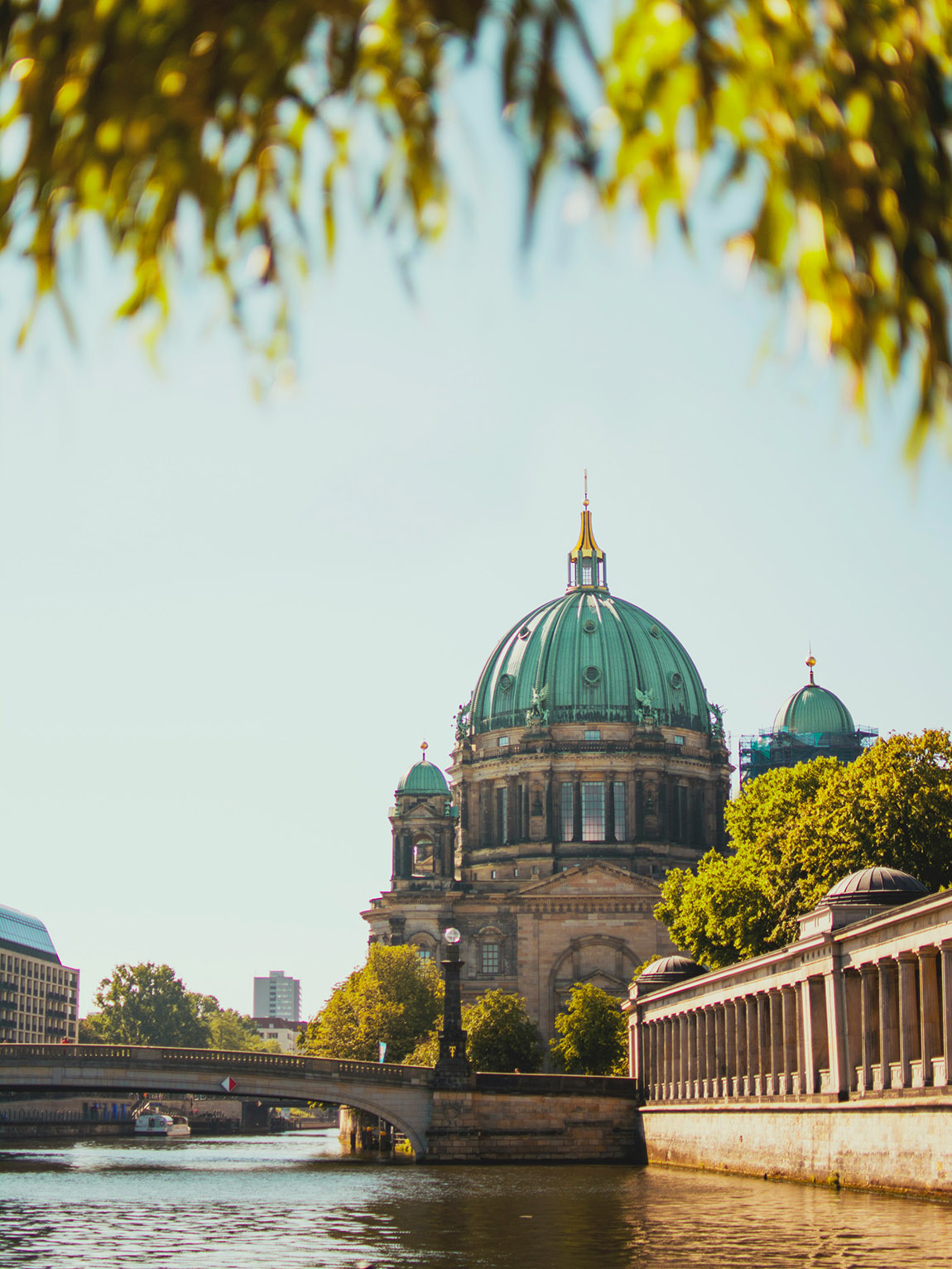
Berlin Museumsinsel, UNESCO world heritage site. Photo by Julia Solonina on Unsplash
Apart from other growing pains, Berliners soon faced a steep rise in rent and living costs, which has not stopped since and was recently further fueled (if you will excuse the term) by the energy crisis. Nonetheless, the city’s magnetism for both tourists and investors, having undergone its own crisis during the pandemic, is now back on (full) track. ‘Is it still wise to invest in Berlin?’ an expatriate online platform recently asked. The broad consensus among both inside and outside investors is undeniably positive.
I remember a recent conversation with a taxi driver of the second or third Turkish immigrant generation who was driving me to the airport, which went from “why I usually take the bicycle around the city” (me) all the way to “my mother has a mind for business and recently advised me to invest in a small apartment” (him). Please note that the drive to BER takes much longer than to any of the former Berlin airports, which, such was the decision-makers’ mantra, “did not serve the city and its newly acquired metropolitan character sufficiently anymore”. Be that as it may and judged much differently from the perspective of longtime residents, it became clear from that taxi conversation how it still makes much sense to consider Berlin and by extension Brandenburg for investments on all levels. Let’s just say, Elon Musk certainly took the message on those airport billboards to heart.
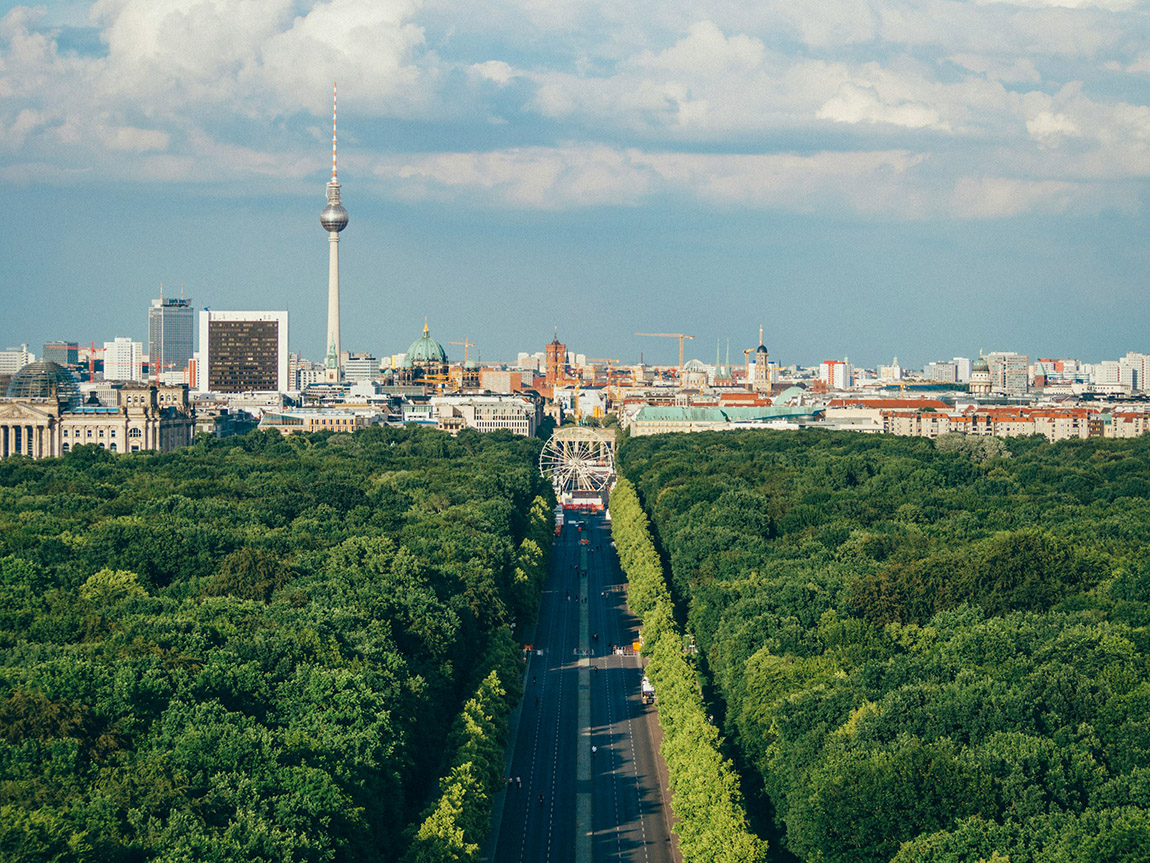
Berlin Panorama with Brandenburg Gate. Photo: Adam Vradenburg on Unsplash
Here are some of the facts that make Berlin an international magnet:
– Since the reunification in 1990, Berlin has regrown into a global center of culture, education, media, tourism, politics and science. It looks back on the most varied and colourful recent history among European cities.
– The city’s universities are among the best worldwide as well as being marked by low tuition fees, and the city’s diverse, inspiring and open-minded culture is a magnet for international students.
– Berlin’s visual and performing art scene is unparalleled, both in terms of the larger institutions and those nurturing emerging artists. Berlin contains three UNESCO World Heritage Sites.
– Berlin means business: With its lively start-up and entrepreneur scene, the capital also hosts a large number of multinational companies, including several international tech giants. There have been major developments for local start-ups that quickly advanced to big players, such as the e-commerce fashion giant Zalando.
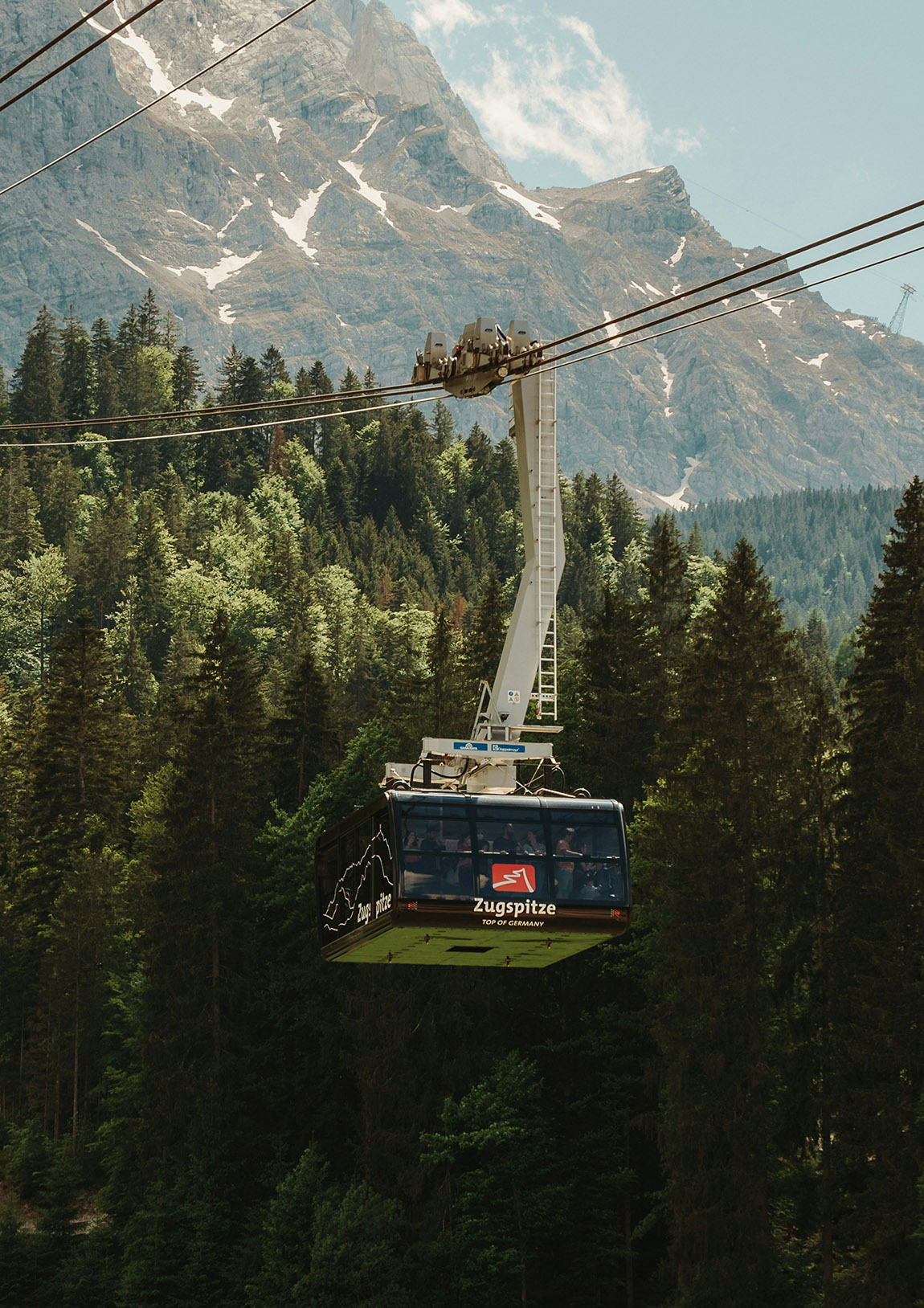
Munich, the Alps are never far. Photo: Chris Kursikowski on Unsplash
Top German Cities: Hamburg, portal to the world
The Northern pearl on the Elbe river features the third-busiest port in Europe and is often dubbed “portal to the world”.
Truly built on water, Hamburg features the largest number of bridges in any European city. Situated by the Elbe river, it is also structured by the Alster, the Bille, Wandse and Este as well a system of numerous canals. There is also often water from the above – with 195 rainy days per year, Hamburg weather equals the proverbial London weather in spirit, and the umbrella is the number one accessory.
Hamburg is a tourism hub and has nurtured cultural phenomena starting with no other than The Beatles, to whom the Hamburg harbour scene served as a nurturing ground in their formative years while taking their first musical steps in front of a crude mix of sailors, demimonde characters and art students.
As opposed to Berlin where the “poor but sexy” label sticks like glue even if not relevant any more, Hamburg has always been a city of wealth. As a former member of the original Hanseatic League, a medieval commercial and defensive network of merchant guilds and Northern market towns, Hamburg looks back on a strong tradition in the finance sector. It even hosts Germany’s oldest stock exchange, which would make Frankfurt its nouveau riche offspring.
The Hamburger per se (as in the citizen, not the dish), is defined by a reliable mix of Northern stoicism, dry humour and open-mindedness. The world famous beef bun meanwhile was presumably developed around 1900 in the US – by German immigrants from Hamburg. Regarding food, the city is still a number one access point for all types of German fish cuisine, with one exception: The unifying dish of all North Sea nations, the Labskaus (Lobscouse in Liverpool) probably was one of the reasons the Beatles felt so much at home in Hamburg, apart from the wet weather. The potato mush contains corned beef and salted meat – satiating, non-perishable foods for long sea journeys.
As for main business sectors, Hamburg thrives in steel, aluminium and copper production, as well as shipbuilding and aerospace, including global market leader Airbus.
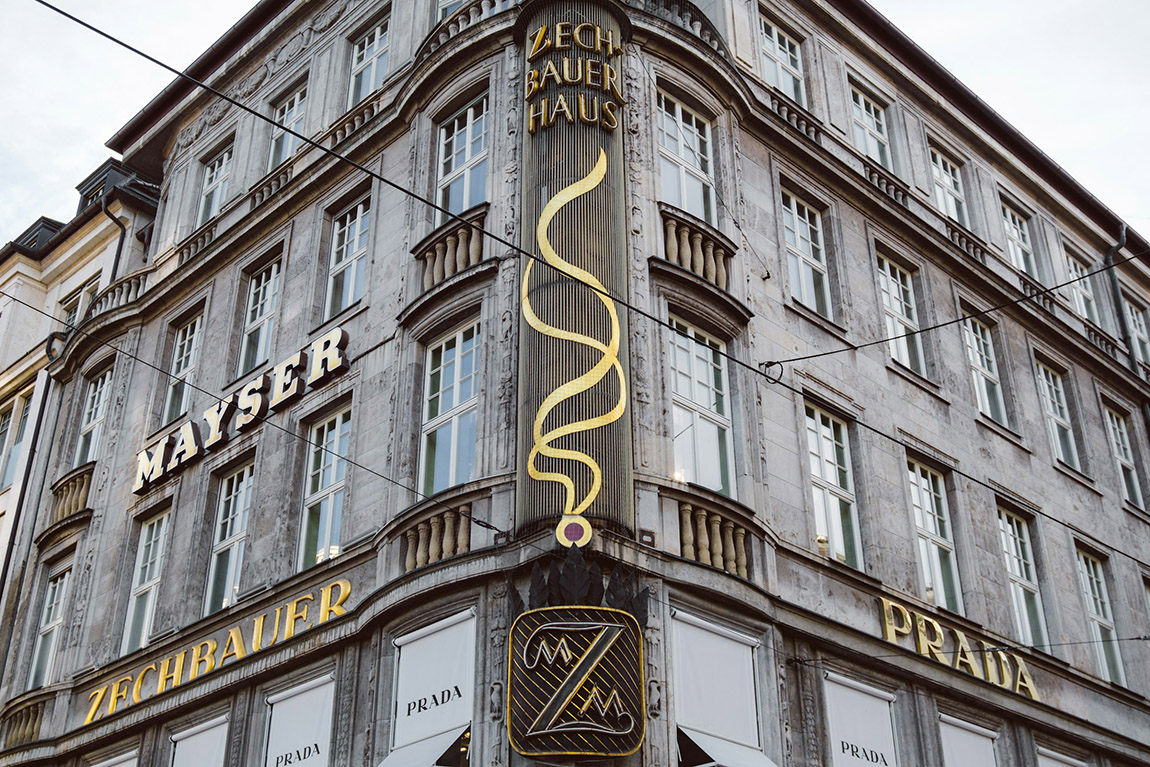
Munich, inner city. Photo: Yves Cedric Schulze on Unsplash
Top German Cities: Munich, liberal heart of the South
Apart from the annual Oktoberfest of beer and pork fame, Munich also features incredible natural surroundings and functions as a German cultural hub due to its impressive museum scape.
No matter if technology and science (Deutsches Museum), classic modern (Pinakothek der Moderne, Lehnbachhaus) or contemporary art (Museum Brandhorst and Kunsthalle), Munich offers an immense treasure trove of inspiring exhibitions all year round. Situated about 160 km from the Austrian border, the charming city also has the immense panorama of the Alps right at its backdoor, a mecca for mountain sports lovers and Heidi-enthusiasts (referring to the bright, philosophical girl in the famous children’s novel by Johanna Spyri).
As for the business part, Munich features a wide array of industries, such as automotive, IT, biotech, engineering, electronics and renewable energy. Multinational companies include BWM, Siemens and Allianz.
And last but not least, Munich of course is home to Bayern Munich, the most successful club in German football history which nowadays proudly includes the current captain of the English national team, Harry Kane. And what does Kane say he likes most about living in Munich? The vicinity to the mountains – and the pretzel buns.
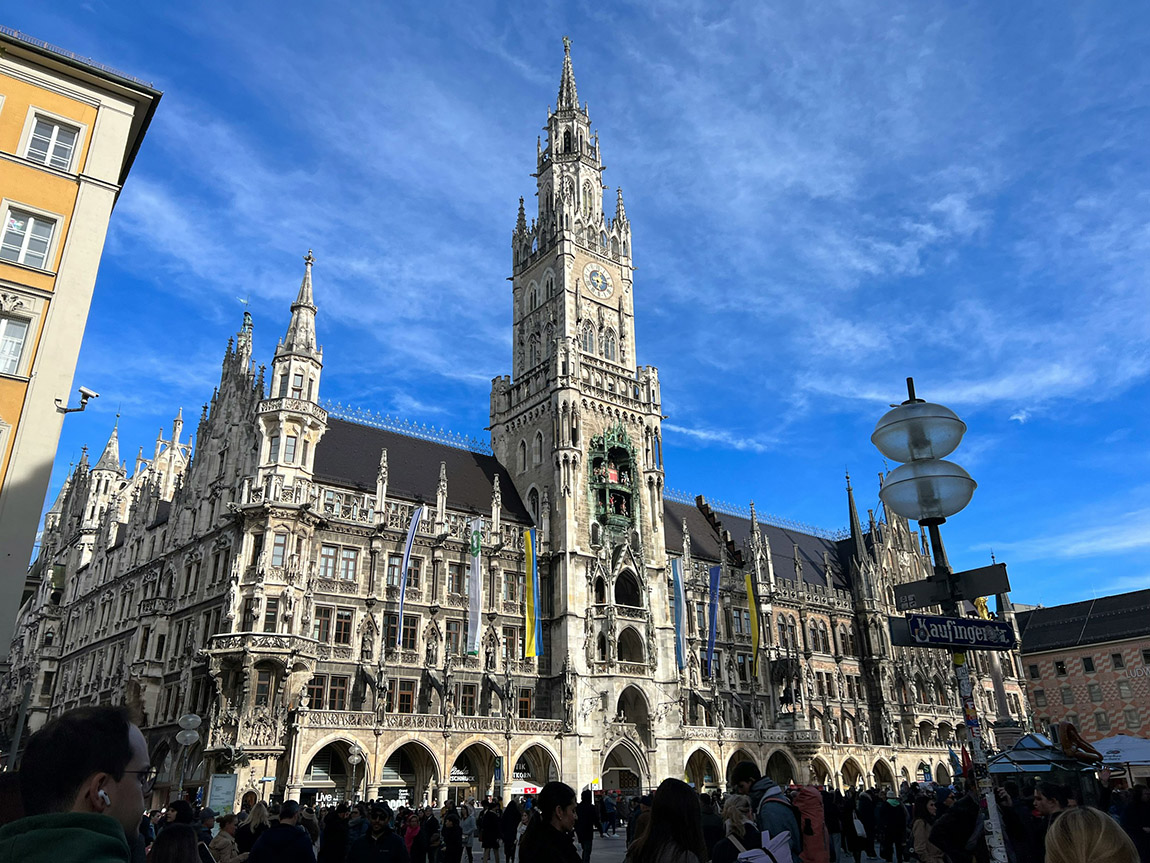
Munich, city hall. Photo: Natalie Gottsmann on Unsplash
Subscribe to Our Newsletter
Receive our monthly newsletter by email

